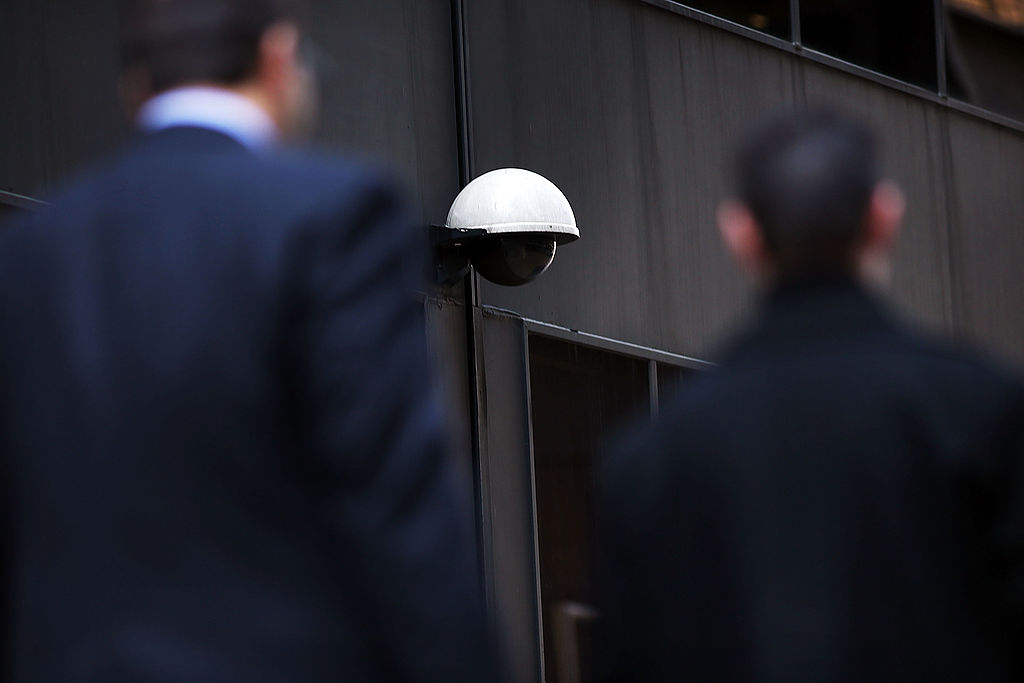The FBI says its surveillance cameras need to be secret to protect the privacy of the people it's watching


A free daily email with the biggest news stories of the day – and the best features from TheWeek.com
You are now subscribed
Your newsletter sign-up was successful
A federal court has ruled in the FBI's favor in a dispute with the city of Seattle over whether the city can disclose in response to public records requests the location of FBI surveillance cameras affixed to city-owned utility poles.
Among the federal agency's arguments in support of surveillance secrecy was the bizarre contention that to reveal the location of the cameras would be a breach of privacy for the people the cameras are recording, because those people have yet to be charged with any crime:
Because of their close proximity to the subjects of surveillance, unauthorized disclosure of the locations of current or previously installed pole cameras can reasonably be expected to constitute an unwarranted invasion of privacy for those persons under investigation who have not yet been charged. [Department of Justice]
The case was preemptively initiated by the FBI following a records request from a Seattle privacy advocate, but the precedent the ruling sets of broad deference to federal law enforcement privilege will be widely applicable beyond the specific circumstances in Washington state. The decision concurs with the Justice Department's argument that disclosure of the camera locations would cause "irreparable harm to important federal interests, namely, the ability to carry out effective investigations," even when the cameras are no longer in use for any active case.
The Week
Escape your echo chamber. Get the facts behind the news, plus analysis from multiple perspectives.

Sign up for The Week's Free Newsletters
From our morning news briefing to a weekly Good News Newsletter, get the best of The Week delivered directly to your inbox.
From our morning news briefing to a weekly Good News Newsletter, get the best of The Week delivered directly to your inbox.
A free daily email with the biggest news stories of the day – and the best features from TheWeek.com
Bonnie Kristian was a deputy editor and acting editor-in-chief of TheWeek.com. She is a columnist at Christianity Today and author of Untrustworthy: The Knowledge Crisis Breaking Our Brains, Polluting Our Politics, and Corrupting Christian Community (forthcoming 2022) and A Flexible Faith: Rethinking What It Means to Follow Jesus Today (2018). Her writing has also appeared at Time Magazine, CNN, USA Today, Newsweek, the Los Angeles Times, and The American Conservative, among other outlets.
-
 Political cartoons for February 7
Political cartoons for February 7Cartoons Saturday’s political cartoons include an earthquake warning, Washington Post Mortem, and more
-
 5 cinematic cartoons about Bezos betting big on 'Melania'
5 cinematic cartoons about Bezos betting big on 'Melania'Cartoons Artists take on a girlboss, a fetching newspaper, and more
-
 The fall of the generals: China’s military purge
The fall of the generals: China’s military purgeIn the Spotlight Xi Jinping’s extraordinary removal of senior general proves that no-one is safe from anti-corruption drive that has investigated millions
-
 Nobody seems surprised Wagner's Prigozhin died under suspicious circumstances
Nobody seems surprised Wagner's Prigozhin died under suspicious circumstancesSpeed Read
-
 Western mountain climbers allegedly left Pakistani porter to die on K2
Western mountain climbers allegedly left Pakistani porter to die on K2Speed Read
-
 'Circular saw blades' divide controversial Rio Grande buoys installed by Texas governor
'Circular saw blades' divide controversial Rio Grande buoys installed by Texas governorSpeed Read
-
 Los Angeles city workers stage 1-day walkout over labor conditions
Los Angeles city workers stage 1-day walkout over labor conditionsSpeed Read
-
 Mega Millions jackpot climbs to an estimated $1.55 billion
Mega Millions jackpot climbs to an estimated $1.55 billionSpeed Read
-
 Bangladesh dealing with worst dengue fever outbreak on record
Bangladesh dealing with worst dengue fever outbreak on recordSpeed Read
-
 Glacial outburst flooding in Juneau destroys homes
Glacial outburst flooding in Juneau destroys homesSpeed Read
-
 Scotland seeking 'monster hunters' to search for fabled Loch Ness creature
Scotland seeking 'monster hunters' to search for fabled Loch Ness creatureSpeed Read
